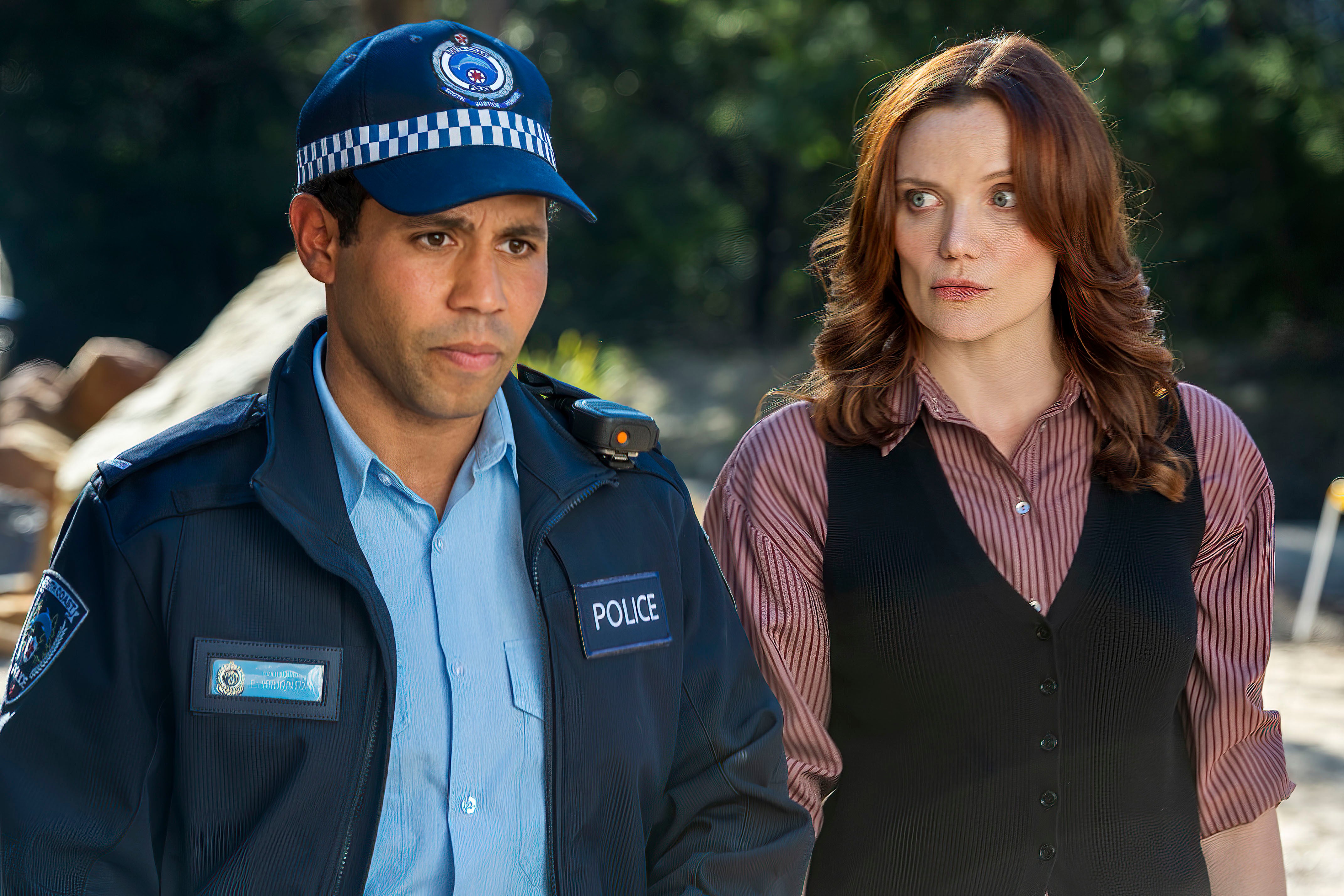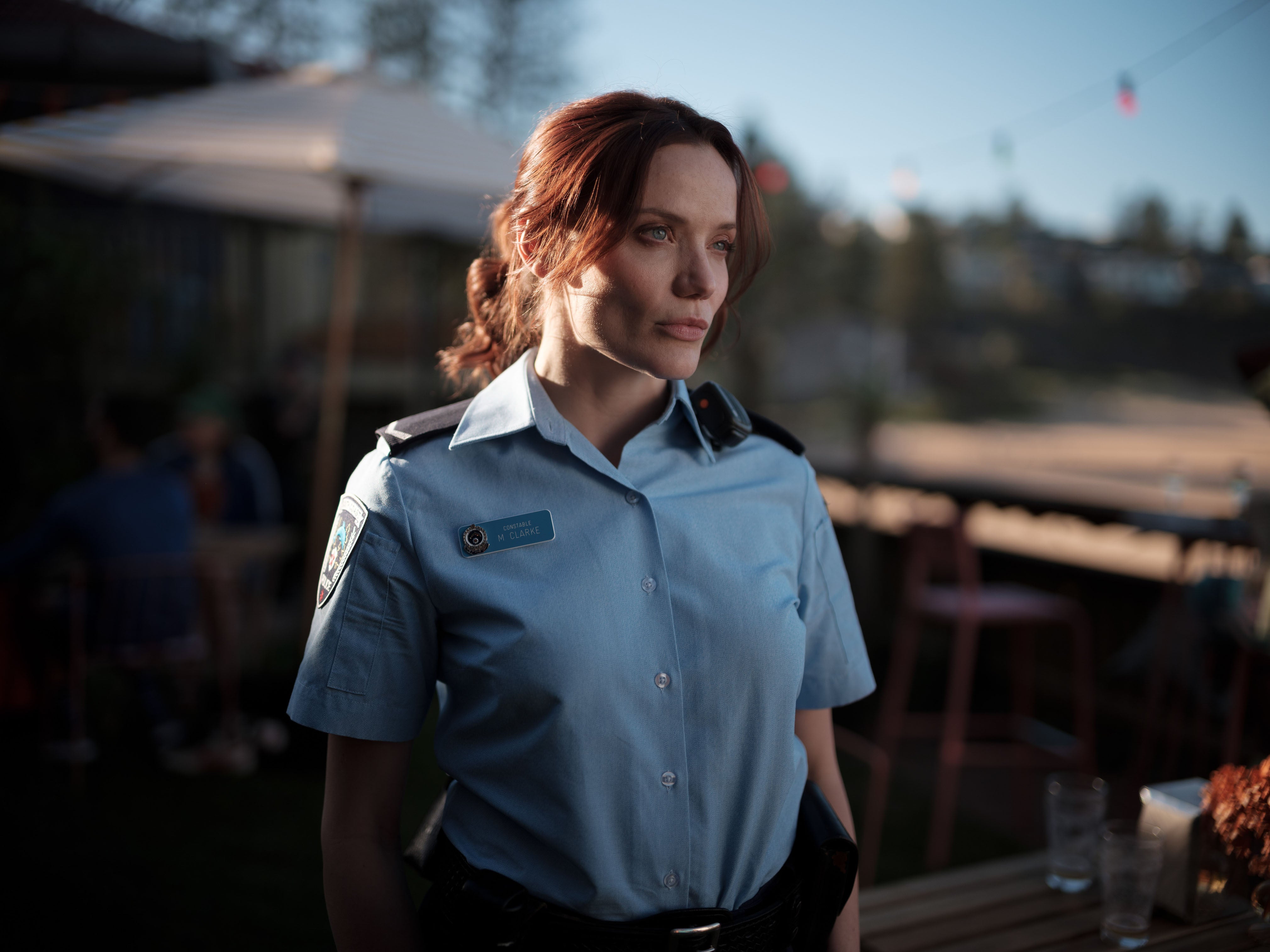Return to Paradise is just right for a drizzly British winter evening
As an emanation of the Death in Paradise franchise, the plotting is just the right side of credible

Meet Detective Inspector Mackenzie Clarke. She’s an Australian copper who migrates to London and makes a brilliant career there, but ends up, frustrated and resentful, back home in Australia’s idyllic, sleepy Dolphin Cove, because of some “misunderstandings” at the Met about her “tampering with evidence”. Hence Return to Paradise, the new Death in Paradise spin-off on BBC One.
Clarke (Home and Away’s Anna Samson) is now stuck in the tiny outpost of law and order she originated from, and one she once couldn’t wait to leave. To make matters worse, her commanding officer, Senior Sergeant Philomena Strong (Catherine McClements), is also the mum of the hunky forensics officer Glenn (Tai Hara) who Clarke jilted at the altar to run away to join the Metropolitan Police all those years ago. Despite that deep well of emotional damage and ethically questionable behaviour, Strong feels obliged to take Clarke back because, well, she’s just so damn good at solving murders.
But the positives seem to end there. Clarke gets on awkwardly with her ex, and though traces of tenderness remain we don’t really understand why she dealt with him so brutally, until, like a victim wondering why a funnel-web spider just bit them, we, and Glenn, come to realise that it’s just her nature. Clarke is equally ill-equipped to work with the bumbling resident copper, Detective Senior Constable Colin Cartwright (Lloyd Griffith), who has made the opposite journey to Clarke – emigrating from England to take life easier in Dolphin Cove.
Refreshingly, there is no hackneyed cobber-Pom business going on, but Clarke is almost relentlessly rude to Cartwright, when not ignoring his very existence, and refuses every attempt by any of her colleagues to build normal working relationships. So many detectives are “troubled” – but in Clarke’s case the troubles are inherent to her very existence, and she almost enjoys them. Samson plays Clarke with a hint of Benedict Cumberbatch’s detached take on Sherlock Holmes.
She is jolly good, though, at nabbing the disproportionately high number of killers in this pleasant corner of coastal Australia, where no one seems to do very much except hang out at the beach. As an emanation of the Death in Paradise franchise, the plotting is just the right side of credible, but only just, with the first episode recalling one of those Jonathan Creek mysteries, where the victim, an estate agent, is locked inside the apparent crime scene but somehow ends up dead, with a knife theatrically in his back, on the beach.
“We’re looking at the wrong crime,” is Clarke’s essential insight, and the one that secures her a “temporary but indefinite” contract at Dolphin Cove. As with the crew in the original Caribbean paradise of Saint Marie, there are a couple of junior officers thrown in for comic ornamentation, and the suspects all gather together at the end to have the whole inexplicable homicidal caper explained to them (a whodunnit staple since at least The Mousetrap).

Most crucially, the franchise has travelled to its new location without losing its most essential quality, which is that it can be happily consumed on a drizzly British winter evening with a glass of Yellow Tail Sauvignon Blanc and only one eye on the screen. This is a considerable achievement. Undemanding but moderately satisfying crime dramas, like a good murder, are much harder to execute than they look.
Join our commenting forum
Join thought-provoking conversations, follow other Independent readers and see their replies
Comments
Bookmark popover
Removed from bookmarks